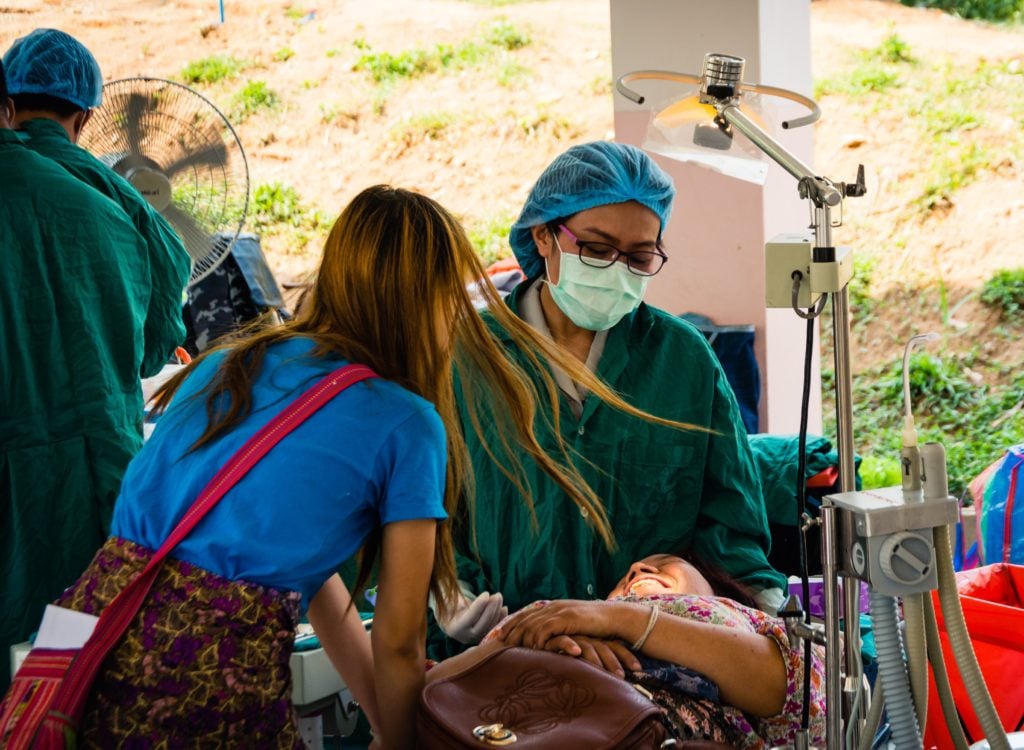One of the most important things that a student can do on his or her medical school application is highlight any distinguishing features that other applicants may not have. While some students view an undergraduate semester spent abroad as inferior to medically-focused experiences, it can be an application boon.
Studying abroad is a valuable source of personal growth, and it can expose future physicians to a number of important lessons. If you plan to include study abroad on your medical school application, here are three key areas to focus on in your essay and interview:
- Cultural competence
Study abroad provides students with the opportunity to deeply immerse themselves in a new culture – students are routinely exposed to different languages, customs, and ways of life during their study abroad experiences.
As healthcare becomes ever more interdisciplinary and team-based, it is vital that future physicians be comfortable working with people from all walks of life. Furthermore, as the American population grows more diverse and insurance reforms are implemented, doctors will care for a more ethnically and socioeconomically varied patient population. Having spent several months in a foreign country, students who have studied abroad will gain insight into the value of diversity. They will learn how to work with people who have completely different backgrounds than their own, as well as how culture impacts all aspects of life. All of these factors will raise students’ cultural competence and serve them well in their path to become compassionate, effective physicians. - Exposure to different healthcare systems
Although study abroad coursework generally does not revolve around medicine (nor does it have to in order for it to be valuable), students will almost certainly be exposed to foreign healthcare systems during their study abroad experience. This may come in the form of submitting medical records about themselves in order to enroll in foreign universities, receiving care as a patient while abroad, or witnessing firsthand the burden of illness on a foreign society. Furthermore, many study abroad programs organize experiences that are tailored toward pre-medical students, such as opportunities to assist and shadow local doctors.
As the American healthcare system continues to evolve, students who have additional perspectives on its delivery will certainly have a deeper understanding of which aspects of the system are beneficial, and which are detrimental. As such, students should be sure to seek out at least one learning opportunity that will expose them to healthcare in a foreign country while they study abroad. This type of exposure can prove invaluable, and it equips pre-medical students to become involved in implementing healthcare change in the United States. - Adaptability to unfamiliar environments
A study abroad semester will also expose students to an environment that they have little knowledge of. Traveling to a new country, taking foreign college coursework, and taking part in a country’s way of life all cultivate a student’s ability to learn, adapt, and thrive in an unfamiliar environment.
Medicine is a field that requires great comfort when dealing with uncertainty. Whether this is regarding a patient’s diagnosis, or the optimal management strategy for a rare disease, pre-medical students should expect to work with incomplete information and with unknown variables. This is analogous to the process of spending a semester abroad. Students will have to work hard to understand various aspects of life in a different country, and then they will have to spend time altering their lifestyle to fit that of their setting abroad. Through this important process, students can expect to set themselves up to succeed in medicine by being comfortable with the unknown.
All in all, studying abroad provides students with invaluable personal growth, which will translate to professional growth in several ways. Students will become more culturally aware, which will bolster their ability to work with and care for individuals from many walks of life. Students can also gain insight into healthcare systems different from our own experiences.
Finally, students will also strengthen their skills in adapting to unfamiliar environments and working in the context of uncertainty, a skill that is central to a career in medicine. Pre-medical students who emphasize these abilities on their applications may soon find themselves fielding interview requests and medical school acceptance letters.
